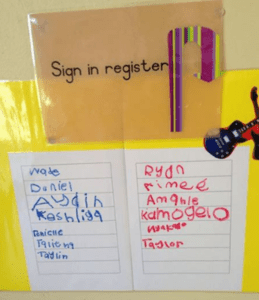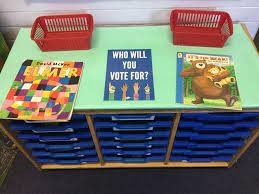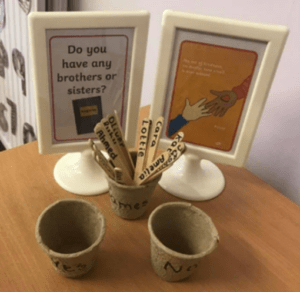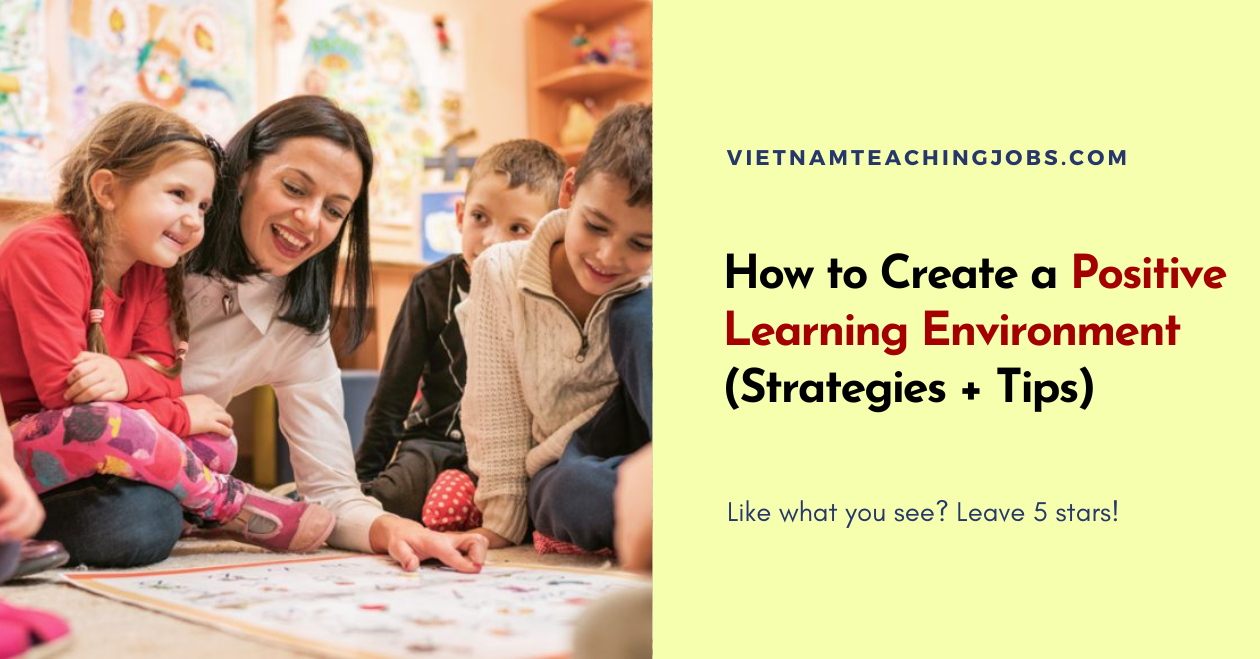The very beginning of the lesson can often be without specific focus- students may be entering the class within a few minutes of each other and there is often a few minutes of general chat whilst the teacher tries to organise things and take the register. All of this takes up valuable learning time but makes the entry and registration process something that takes up time but has no educational benefit. Those minutes of registration all add up, so why not use those moments effectively through self-registration?
Self-registration enables pupils to:
- Develop reading skills
- Encourages writing skills
- Adds a sense of excitement and offers a productive start to the lesson
- Encourages ownership as part of the class
Self-registration is something that can be used for any EFL classroom and can be adapted to suit any topic or any age or ability level.
Self-registration for younger pupils / beginner level
At this stage, the focus is on recognising names – names are very important for the young learner- in terms of both recognition as well as the aspect of writing the name.
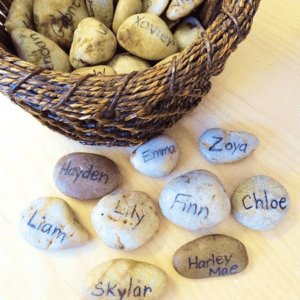 The simplest way to work with names and self-registration is through providing the students with their own name that they need to recognise and move to somewhere. For example:
The simplest way to work with names and self-registration is through providing the students with their own name that they need to recognise and move to somewhere. For example:
- Write names on coloured sticks – students need to find their name and move it from one pot to another
- Name cards – students find their name and peg it on a washing line which you have set up in the class
- Finding a stone with their name on it and either putting it in a basket or matching the stone to a sheet of names
Simple items such as stones can be used – anything that you have available will do!
A slightly more advanced way is through the students writing their name on something and then putting it somewhere. This can be on small pieces of paper or in a book – the place is unimportant. Similarly, it is not important where the students put the name – it can be as basic or as creative as you would like it to be e.g. moving from one flower pot to another / from one table to another / screwing up the name and using as a ball to throw into a pot etc.
Self-registration for older pupils/ intermediate level
Self-registration can be used for older pupils and students who have a higher level of English. This can be through a variety of simple activities.
WORD LEVEL
Washing line with pegs and keywords (and pictures) – students take the keyword to practise and replace it with their name. When the register is taken (or as part of the introduction of the lesson) students show their picture/keyword and depending on the level, name their picture / keyword and use it in a sentence.
Finding a stone with their name on it and matching the stone to their name that has a keyword next to it. Students can then either remember the word or share it when the class is together. Alternatively, students can write the word on paper along with a picture to demonstrate they understand the meaning and/or use it in a sentence
SENTENCE LEVEL
At a sentence level, you can use self-registration to encourage pupils to read a sentence and respond.
One simple way to give pupils an option of two (or more) choices. For example, put out two books and two containers (for names) and include a sentence e.g. which book do you like?
Featured Job
Students can either:
- Add their teacher prepared name/picture card to the container
- write their name on a small piece of paper and add it to the container
Things you can compare against (for voting)
There are limitless things that you can use for this activity for students to compare. You can use items at the school/language centre or bring in things from home – the item that you use is not that important as it is all about the reading and use of vocabulary.
When comparing, you can have two items for a simpler task or use more items to make the activity more complex.
- books
- pencil or marker
- colours
- long socks or pop socks
- fruits
- wax crayons or pencil crayons
- vegetables
- drinks
- chalk and board/whiteboard and marker
- spoon or fork
- leaves
- shoes or flip flops
- flowers
For more advanced students this can be extended further through:
- Providing a simple word bank of keywords e.g. funny/pretty/interesting and students reading and choosing a keyword to describe why they like their choice. They then write that word on paper and add it to the container.
- Students writing a word/sentence about the reason why they made that choice
Examples of simple questions that you can ask:
- Are you a boy?
- Do you go to school?
- Can you swim?
- Do you have a brother?
- Are you wearing socks?
- Do you like shopping?
- Do you like football?
- Are you happy?
- Do you like studying?
- Do you live in a house?
- Can you cook?
- Are you wearing a watch?
- Do you like bananas?
Self-registration is an activity that you can experiment with and develop as the students’ knowledge improves. It is a simple but effective way to start off a lesson from the moment the students enter and gets the students into learning mode immediately, enabling you to get your lesson off to a wonderful start!
Are you facing difficulties in finding and securing teaching positions in Vietnam? Are visa procedures causing you trouble? Feeling overwhelmed and directionless upon your arrival in Vietnam for teaching assignments? Don’t worry, VTJ’s English Teaching Placement in Vietnam (EPIV) Program 2024 provides comprehensive support to solve ALL the matters.
👉👉👉 Click HERE to request free consultation


